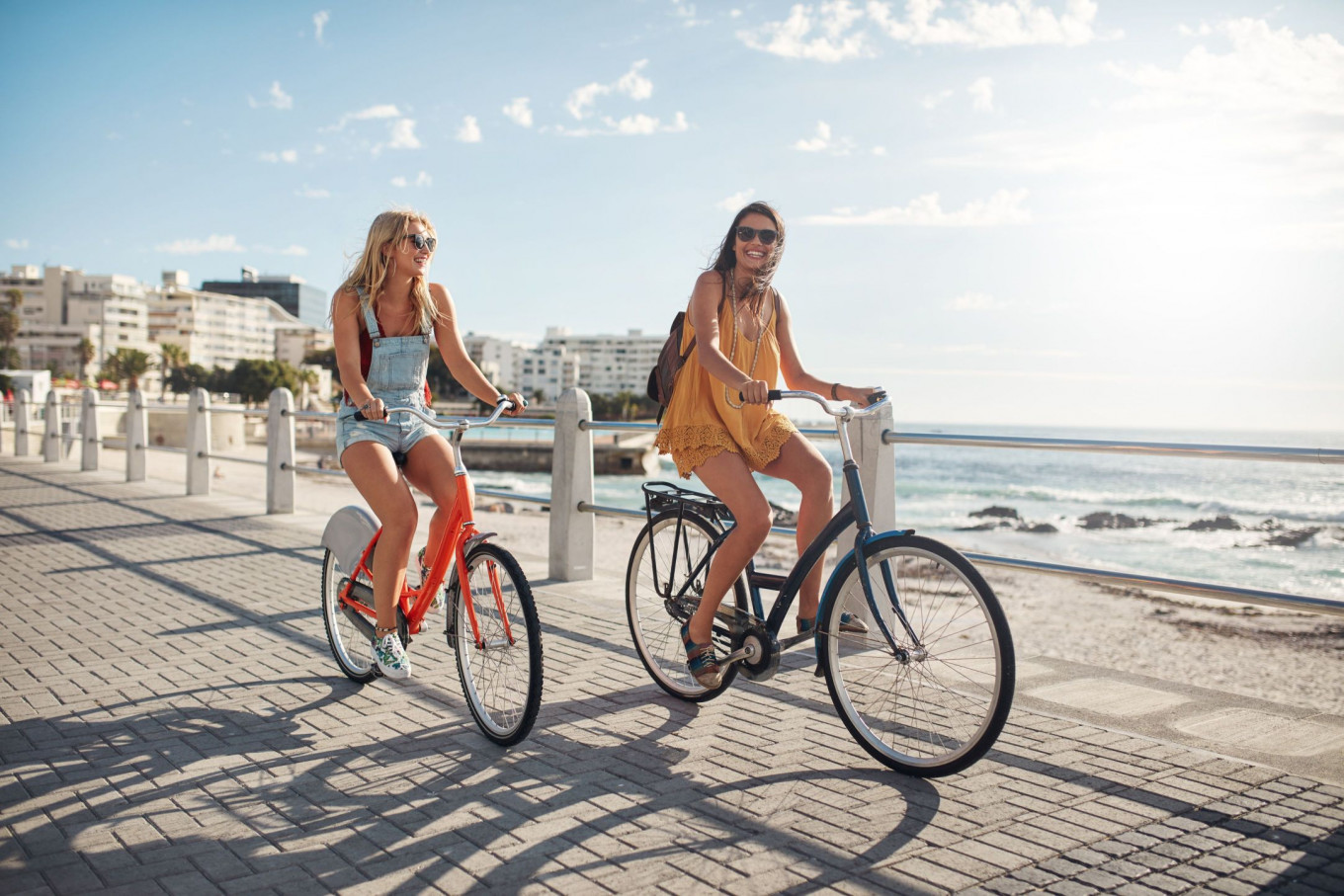Popular Reads
Top Results
Can't find what you're looking for?
View all search resultsPopular Reads
Top Results
Can't find what you're looking for?
View all search results
- Jakarta
- Fri, August 18, 2023
Change text size
Gift Premium Articles
to Anyone
Work It Right is a weekly column that provides practical and insightful advice on the complexities of urban transportation.
On July 12, Olivia Chow was inaugurated as the mayor of Toronto, Canada. Interestingly, a group of Toronto cyclists escorted her to city hall to be sworn in. Along the way, the group rang bicycle bells and whistles, celebrating her victory as the 66th mayor of Toronto.
Chow is an avid daily cyclist and cycling advocate who walks the talk; she doesn’t have a car. “Let’s build a Toronto that is more affordable, safe and caring, where everyone belongs,” she said after signing the declaration.
According to Toronto City News, Chow is a former member of parliament from the New Democratic Party (NDP) and a former city councilor. She defeated 101 other candidates to win last month’s mayoral by-election to replace John Tory. Her victory vaults a progressive into Toronto’s top position for the first time in over a decade.
During the campaign, Chow’s rivals "attacked" her by blaming the bicycle lanes as the cause of worsening traffic jams in Toronto, even though studies and research proved otherwise.
Chow is not alone. Bogotá, Colombia also has a female mayor who is pro-cycling.
Claudia López Hernández, Mayor of Bogotá, arrived to the MOBILIZE Summit last June on her bicycle. It was not a gimmick; Hernández proved herself by implementing pro-cycling policies.
Bogota’s project started with the Carrera Séptima (Green Corridor), which created a friendly area for walking, cycling and public transportation to add temporary bicycle lanes (pop-up bike lanes) during the COVID-19 pandemic. These temporary bike lanes were eventually made permanent, making Bogotá’s bike path network one of the largest in the world, reaching a total length of 593 kilometers.
In Paris, Mayor Anne Hidalgo is no less "radical".
Through Plan Vélo 2021-2026, Hidalgo is adding many pop-up bike lanes, which become permanent parts of the city’s infrastructure. The city has also added 130 km of protected cycling paths to the existing bike path network known as Vélopolitain.
To drive this transformation, Paris is redesigning city streets to make them safer for cyclists. In 2026, Paris will take over one of two roadside parking lots to plant trees and create children's play areas and bicycle facilities. Hidalgo is also budgeting US$290 million into Plan Vélo to build safer and more comfortable cities for cyclists over the next few years.
Wanted: (Female) leaders who understand the importance of safe city cycling
Cycling is one of the most versatile, sustainable and inclusive modes of transport. No fossil fuels are needed, and therefore no harmful emissions are produced. Bicycles are incredibly versatile; they can be built with more than two wheels, adding cargo capacity or a trolley to accommodate the user's needs.
So why do more women need to cycle, and why do women need to support pro-cycling policies?
According to the Association for Pedestrian and Bicycle Professionals (APBP), a good indicator of bicycle safety in a city is the presence of mothers riding bicycles with children. Women riding bikes points to overall bicycle safety in a city.
There are many reasons that cities should have more women riding bicycles.
Smart Cities Dive mentioned that women tend to use bicycles for daily mobility rather than sports; women tend to look for safer bike routes, which increases demand for connected and secure bicycle infrastructure as a prerequisite for riding. Developing bicycle infrastructure around the needs of women will help create a more sustainable and holistic infrastructure that can also accommodate other segments of the population, such as older people and children.
The Guardian article titled “Want to make the streets safer for women? Start with cycling” emphasizes cities that have successfully increased the number of women cycling by designing protected bike lanes, providing safe bike parking, implementing bike sharing systems and establishing pro-cycling policies, speed limit policies or Low-Emission Zones (LEZ).
With the rise of road safety issues in Indonesia—in 2022, the National Police recorded 131,500 traffic accidents in the country, of which 74.35 percent occurred on motorbikes—I think it is time for us to demand politicians that can assure the safety of our loved ones on the roads.
And that person could be a woman.
-- Have a question about urban transportation? Send it to wir@thejakartapost.com with your name and current location (anonymous submissions may also be considered). Please note that The Jakarta Post reserves the right to edit your letters for publication.
***
The author is a senior communications and partnership manager at the Institute for Transportation and Development Policy (ITDP).
Have a question about urban transportation? Send it to wir@thejakartapost.com with your name and current location (anonymous submissions will also be considered). Please note that The Jakarta Post reserves the right to edit your letters for publication.









